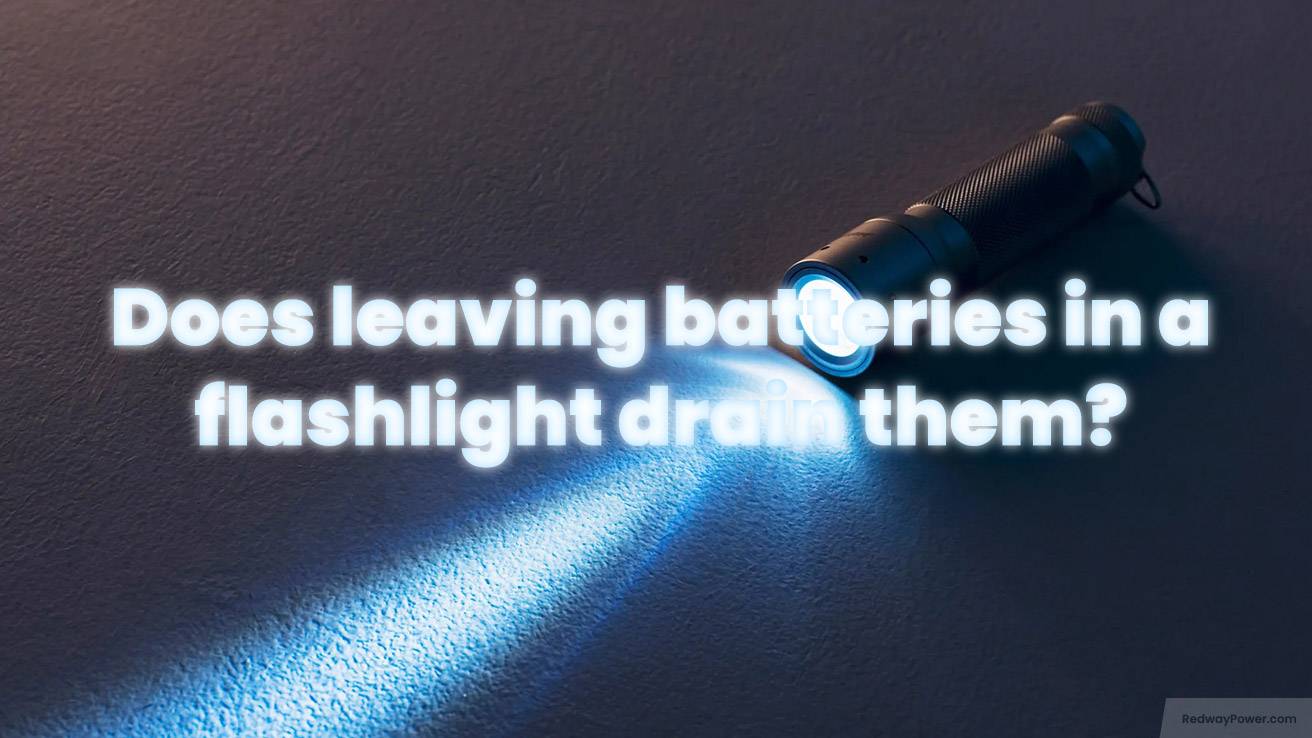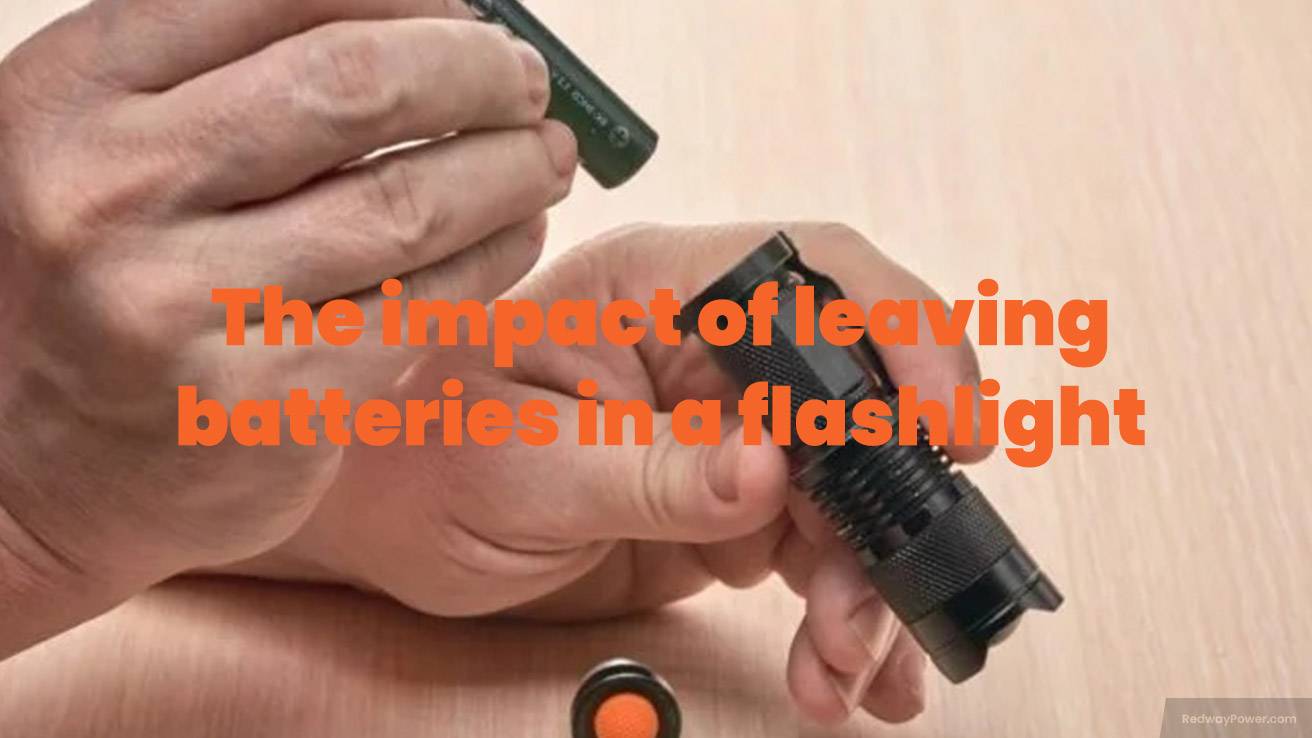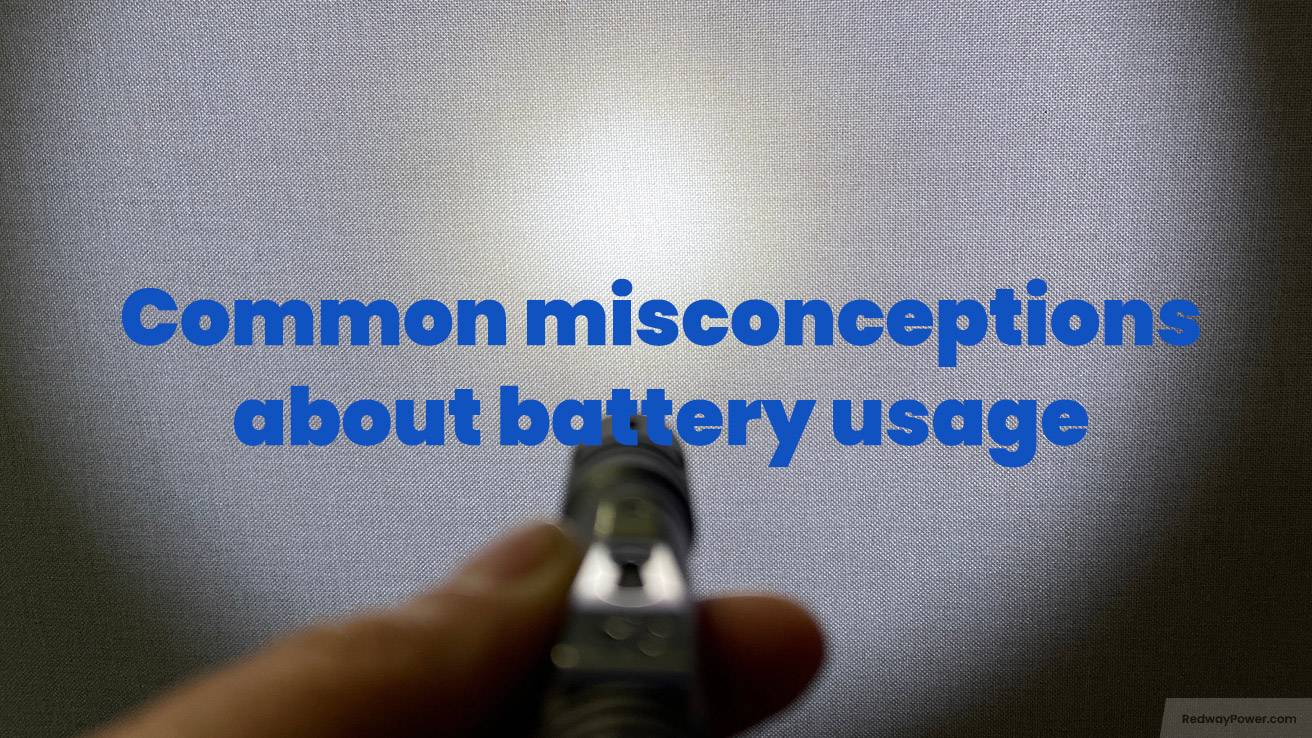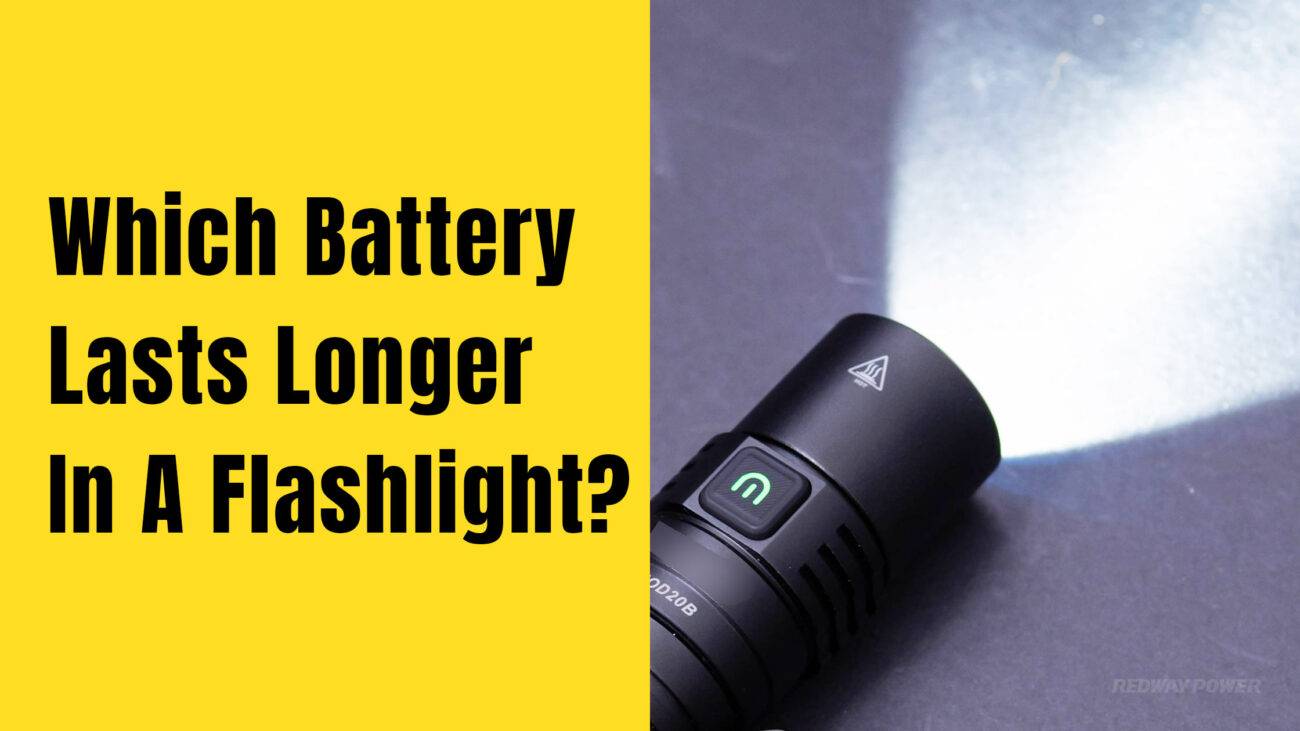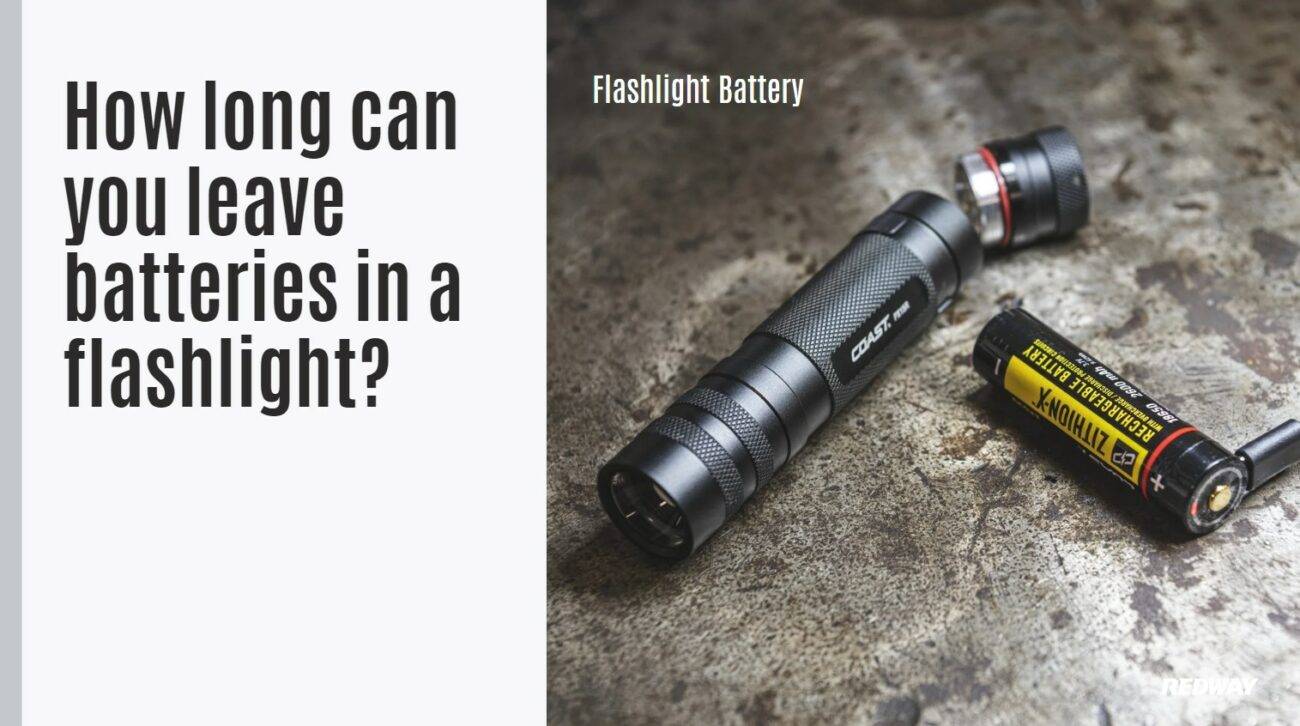Yes, leaving batteries in a flashlight can drain them over time. Even when turned off, batteries lose charge due to internal reactions and may leak chemicals, damaging the flashlight. To avoid this, store batteries separately in a cool, dry place, or use flashlights with battery guard features to prevent drainage.
How batteries work and their lifespan
Batteries power our everyday devices, but their lifespan can vary based on factors like type and environment. Let’s explore some simple tips to extend battery life and ensure reliable performance.
- Choose the Right Type:
- Alkaline batteries typically last 2-7 years, while lithium-ion batteries offer hundreds of cycles.
- Understanding the differences can help you select the best option for your devices.
- Consider Environmental Factors:
- Factors like temperature, humidity, and storage conditions can impact battery life.
- Storing devices in cool, dry places and avoiding extreme charge levels can help prolong battery lifespan.
- Practice Good Battery Management:
- Remove batteries from devices during long periods of non-use to prevent power loss.
- Understanding battery basics and implementing proper care can significantly extend their lifespan, ensuring reliable performance when needed.
Factors that affect battery drainage
Discover the factors influencing battery drainage and how to mitigate them to prolong battery life. Let’s explore key considerations to ensure optimal performance from your batteries when you need them most.
- Battery Type and Quality:
- Different battery types have varying self-discharge rates, impacting how quickly they lose charge.
- Choose high-quality batteries to minimize drainage, ensuring longer-lasting power for your devices.
- Temperature:
- Extreme temperatures can accelerate battery drainage, whether hot or cold.
- Store batteries and devices at room temperature to mitigate this effect and preserve battery life.
- Usage and Settings:
- Frequent usage and power-intensive settings can drain batteries faster.
- Be mindful of how you use your devices and adjust settings to conserve battery life for prolonged usage.
The impact of leaving batteries in a flashlight
Leaving batteries inside a flashlight for extended periods can impact their performance. Let’s explore the effects of this practice and how to prevent unnecessary drainage to ensure optimal battery lifespan.
- Slow Discharge:
- When left unused, flashlights may experience slow discharge due to internal circuitry or residual power usage.
- This gradual drain can significantly reduce battery life over time, even when the flashlight is turned off.
- Temperature Fluctuations:
- Extreme temperatures can accelerate self-discharge and diminish battery capacity, affecting flashlight performance.
- Storing batteries in unfavorable conditions can lead to quicker depletion and reduced brightness during use.
- Reduced Performance:
- Continuous drain and exposure to unfavorable temperatures can result in diminished flashlight performance.
- To maintain optimal battery lifespan and performance, it’s advisable to remove batteries during long periods of non-use and store them separately in a cool, dry place.
Tips for extending battery life
Maximizing battery life is crucial for ensuring your flashlight is always reliable when you need it. Let’s explore some simple yet effective tips to extend the lifespan of your batteries.
- Choose the Right Batteries:
- Select the battery type recommended by the flashlight manufacturer for optimal performance.
- This ensures compatibility and enhances the efficiency of your flashlight.
- Remove Batteries When Idle:
- Prevent drainage, leakage, or corrosion by taking out batteries during periods of non-use.
- This simple step helps preserve battery integrity and extends their lifespan.
- Store Properly:
- Keep spare batteries in a cool, dry place away from extreme temperatures to maintain performance.
- Proper storage conditions help preserve battery capacity and ensure they’re ready for use when needed.
- Power Off Completely:
- Always switch off your flashlight after use to avoid unnecessary battery drain.
- This habit conserves battery power and extends their longevity for future use.
- Clean Contacts:
- Regularly clean the battery contacts to ensure proper electrical connections and maximize efficiency.
- Clean contacts promote better conductivity, leading to improved battery performance.
- Consider Rechargeables:
- If you use your flashlight frequently, consider investing in rechargeable batteries to save money on replacements.
- Rechargeable batteries offer convenience and reduce environmental impact compared to disposable ones.
Common misconceptions about battery usage
Let’s debunk some common misconceptions about battery usage to ensure efficient and effective power management for your devices. Understanding these myths is essential for maximizing battery lifespan and minimizing waste.
- Leaving Batteries in Devices Won’t Drain Them:
- Contrary to popular belief, devices like flashlights can slowly drain batteries over time, necessitating removal during extended periods of non-use.
- This practice helps preserve battery integrity and ensures they’re ready for use when needed.
- Rechargeable Batteries Last Forever:
- While rechargeables are reusable, they degrade over time with each charge cycle, eventually losing their ability to hold a charge effectively.
- Understanding this misconception helps users manage expectations and plan for battery replacements accordingly.
- Mixing Old and New Batteries Won’t Affect Performance:
- Combining different battery types or ages can lead to imbalanced power distribution and decreased efficiency.
- To optimize device performance, it’s best to use batteries of the same type and age for consistent power output.
- Storing Batteries in the Refrigerator Prolongs Lifespan:
- Refrigerating standard alkaline batteries doesn’t significantly extend their shelf life and can even damage them due to extreme temperatures.
- Proper storage in a cool, dry place away from temperature extremes is more effective in preserving battery integrity.
- Always Fully Discharge Rechargeable Batteries Before Recharging:
- This outdated advice can harm modern lithium-ion or nickel-based rechargeables, reducing their lifespan.
- Instead, follow manufacturer recommendations for charging cycles to maximize rechargeable battery longevity.
- Removing One Dead Battery Will Preserve Others’ Power:
- Removing a dead cell from a device won’t save remaining batteries’ energy; it’s best to replace all depleted cells for optimal performance.
- This ensures balanced power distribution and prevents strain on remaining batteries.
Can a flashlight discharge a battery when not in use?
Have you ever picked up your flashlight only to find that the batteries seem weaker than before? It’s a common concern among flashlight users – can a flashlight drain batteries even when it’s not in use?
The answer lies in the design of the flashlight itself. Some flashlights have features like standby modes or power-hungry components that can slowly draw power from the batteries, even when switched off. This constant trickle of energy consumption can lead to battery drainage over time.
To prevent unnecessary battery discharge, consider removing the batteries from your flashlight if you don’t plan on using it for an extended period. Storing batteries separately and keeping them in a cool, dry place can also help preserve their charge for when you need them most.
What should be done if a Li-ion cell is over-discharged?
If a Li-ion cell is over-discharged, it’s crucial to act promptly. One option is to use a specialized charger that can attempt to revive the battery by slowly and carefully applying a low voltage charge. This process might help recover the cell if caught in time.
Another approach is to dispose of the over-discharged battery properly at a dedicated recycling facility or through programs offered by some retailers. It’s essential not to attempt charging an extremely over-discharged cell as it can lead to safety hazards like overheating or even fire.
Taking care of your Li-ion batteries by avoiding deep discharges and using them regularly helps maintain their health and prolong their lifespan. Remember, safety always comes first when dealing with any type of battery issue.
What signs indicate a Li-ion cell needs recycling?
Have you ever wondered when it’s time to recycle a Li-ion battery from your flashlight? One sign to watch out for is a significant decrease in battery life or performance. If your flashlight doesn’t hold a charge like it used to, it might be time to consider recycling the battery.
Another indicator that a Li-ion cell needs recycling is physical damage. If you notice any swelling, leakage, or unusual odors coming from the battery, it’s best to dispose of it properly.
Recycling old batteries not only helps prevent environmental harm but also ensures safety. It’s important to handle and recycle lithium-ion cells correctly as they can pose fire risks if mishandled.
By being aware of these signs and taking proactive steps towards recycling old batteries, you contribute positively towards sustainability and safety practices in handling electronic waste.
Is over-discharging or subsequent charging riskier?
Over-discharging or subsequent charging – which is riskier when it comes to your flashlight batteries? Well, let’s shed some light on this topic.
When a battery is over-discharged, it can lead to irreversible damage and potentially shorten its lifespan. This happens when the voltage drops below a certain level. On the other hand, frequent charging after over-discharging can cause stress on the battery cells due to rapid recharging.
Ideally, it’s best to avoid both scenarios by using your flashlight regularly and not allowing the battery to fully drain. Additionally, using a quality charger that prevents over-charging can help prolong your battery’s life.
Remember, prevention is key when it comes to maintaining the health of your Li-ion batteries in your flashlight. So, be mindful of how you use and recharge them for optimal performance.
How long can Li-ions hold a charge when unused?
Ever wondered how long lithium-ion batteries can hold a charge when left unused? Well, the answer might surprise you. Li-ions are known for their ability to retain power over extended periods compared to other battery types. This means that if you charge up your flashlight and then store it away, chances are it will still have juice when you need it.
The shelf life of Li-ion batteries largely depends on storage conditions. Ideally, they should be kept at around 50% charge in a cool, dry place to maintain longevity. Unlike older nickel-based batteries, Li-ions don’t suffer from memory effect, so there’s no need to fully discharge them before recharging.
In general, a well-maintained Li-ion battery can hold its charge for several months without significant loss. However, factors like temperature and self-discharge rates can impact this duration. So next time you grab your flashlight after a few months of neglecting it, don’t be surprised if it still lights up the darkness!
Is it safe to leave a flashlight with a battery stored?
Leaving a flashlight with a battery stored is generally safe, but there are some things to consider. Batteries can slowly lose their charge over time even when not in use. This gradual discharge is normal and shouldn’t cause any harm. However, if you plan on storing the flashlight for an extended period, it’s recommended to remove the batteries to prevent any potential leakage or corrosion.
Storing batteries inside a flashlight for too long without using it can lead to corrosion issues that may damage the device. To avoid this, check your flashlight periodically and remove the batteries if you won’t be using it for an extended period of time.
It’s safe to leave a flashlight with a battery stored as long as you take proper precautions. Just remember to occasionally inspect the device and remove the batteries if storing it for an extended duration.
How long will an unused 18650 battery last in a flashlight?
Ever wondered how long an 18650 battery can last in a flashlight when left unused? These batteries are known for their impressive energy storage capacity, making them popular choices for various electronic devices.
When stored properly in a cool and dry place, an unused 18650 battery can hold its charge for months. However, factors like temperature and self-discharge rates can affect the overall longevity of the battery’s charge.
To maximize the lifespan of your 18650 battery, it’s recommended to check on it periodically and top up the charge if needed. This simple step can help prevent over-discharging and ensure that your flashlight is always ready when you need it.
Remember to follow manufacturer guidelines for storing lithium-ion batteries safely. By taking proper care of your 18650 battery, you can extend its shelf life and maintain optimal performance in your flashlight.
Do 18650 batteries catch fire if over-discharged?
Have you ever wondered about the risks of over-discharging 18650 batteries? Well, it’s essential to understand that over-discharging can indeed pose a fire hazard. When a lithium-ion battery like the 18650 is drained beyond its safe limit, it can lead to internal damage and potential thermal runaway.
This dangerous situation occurs when the battery becomes excessively discharged, causing chemical reactions within the cell that generate heat. As this heat builds up uncontrollably, there is a risk of ignition and even an explosion in extreme cases.
To prevent such incidents, it’s crucial to monitor your batteries’ voltage levels regularly and avoid running them down too low. Investing in quality chargers that offer protection against over-discharge can also help mitigate these risks effectively.
Always prioritize safety when handling lithium-ion batteries like the 18650 to ensure their longevity and minimize any potential hazards associated with over-discharging.
How long can 18650 batteries stay unused in a flashlight?
Ever wondered how long those 18650 batteries can sit in your flashlight before losing their charge? Well, it really depends on the quality of the battery and how well it’s been stored. Generally, high-quality lithium-ion batteries like the 18650s can hold a charge for quite some time when left unused.
If you have a premium brand like Panasonic or Samsung, they might retain up to 80% of their charge after a year of non-use. However, lower-quality or older batteries may lose their charge quicker. Storing them in a cool, dry place away from direct sunlight will help maintain their longevity.
It’s always good practice to check your batteries periodically if they’ve been sitting idle for an extended period. This way, you can ensure they’re still ready to power up your trusty flashlight when needed most.
What to do if a Li-ion battery is over-discharged?
If you find yourself in a situation where a Li-ion battery has been over-discharged, don’t panic. The first step is to avoid trying to recharge it immediately as this can potentially cause damage. Instead, allow the battery to rest for some time.
Next, try using a specialized charger that is designed for reviving over-discharged batteries. These chargers have safety features that can help recover the battery without risking further damage.
If the battery still doesn’t show any signs of life after attempting to revive it with a specialized charger, it might be time to consider recycling or disposing of it properly. Most electronic stores or recycling centers accept old batteries for safe disposal.
Remember, always handle over-discharged batteries with care and follow proper guidelines for disposal to ensure your safety and protect the environment.
Is there a fire risk from over-discharging Li-ion batteries?
Is there a fire risk from over-discharging Li-ion batteries?
While leaving batteries in a flashlight may not necessarily drain them, it is crucial to be mindful of the risks associated with over-discharging Li-ion cells. Over-discharging can lead to safety hazards, including the potential for fires or explosions. It is essential to handle and store batteries properly, follow manufacturer guidelines, and avoid over-discharge to ensure safe usage.
Remember, always prioritize safety when handling batteries and flashlights to prevent any unwanted incidents. Stay informed about best practices for battery maintenance and storage to maximize their lifespan while minimizing risks. By taking these precautions, you can enjoy the convenience of using your flashlight without compromising on safety.
Conclusion and recommendations for preserving battery life
To ensure your flashlight is always ready for use and to maximize battery lifespan, it’s essential to follow some simple recommendations. Let’s explore these tips for proper battery care and efficient flashlight usage.
- Remove Batteries When Not in Use:
- Prevent unnecessary drainage by removing batteries from the flashlight when it’s not in use.
- This simple step helps preserve battery life and ensures they’re ready when needed.
- Store Flashlights Without Batteries:
- Store flashlights without batteries inserted, especially for extended periods, to prevent corrosion or leakage.
- Proper storage conditions help maintain battery integrity and performance over time.
- Check Expiry Dates:
- Always check battery expiration dates before purchase to ensure optimal performance.
- Choosing fresh batteries guarantees reliable power when you need it most.
- Choose Quality Batteries:
- Opt for high-quality alkaline or lithium-ion batteries known for longer shelf life and better performance.
- Quality batteries offer consistent power output and minimize the risk of leakage or malfunction.
- Use Rechargeable Batteries:
- Consider using eco-friendly rechargeable batteries to save money and reduce waste.
- Rechargeable batteries offer a sustainable alternative and can be recharged multiple times for extended use.
- Mind Temperature Conditions:
- Store batteries in moderate temperature conditions to prevent adverse effects on performance.
- Extreme temperatures can impact battery efficiency, so keep them in cool, dry places away from sunlight or moisture.
- Store Batteries Correctly:
- Store batteries in cool, dry places away from sunlight, heat, or moisture to prevent premature degradation.
- Proper storage helps maintain battery capacity and ensures reliable performance over time.

